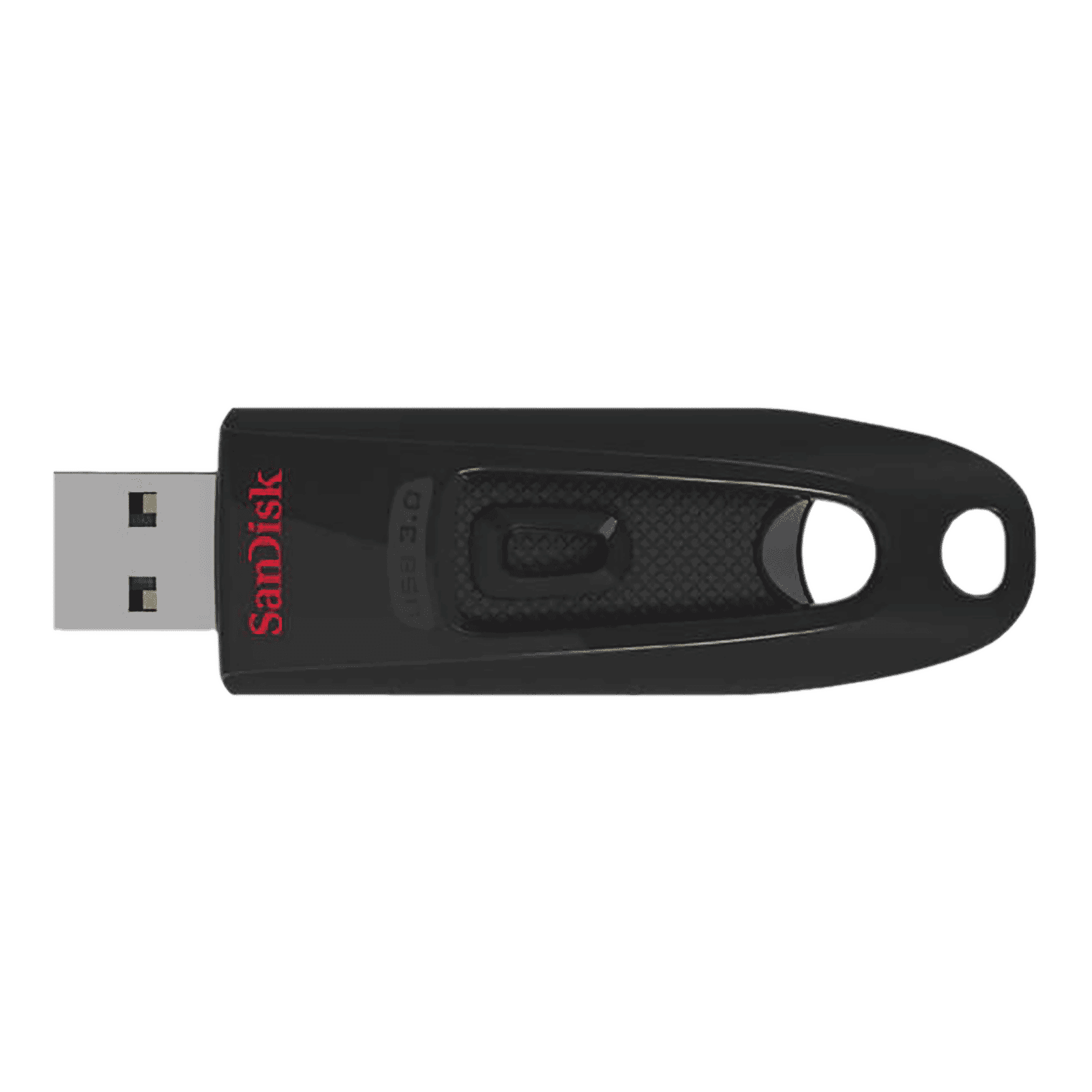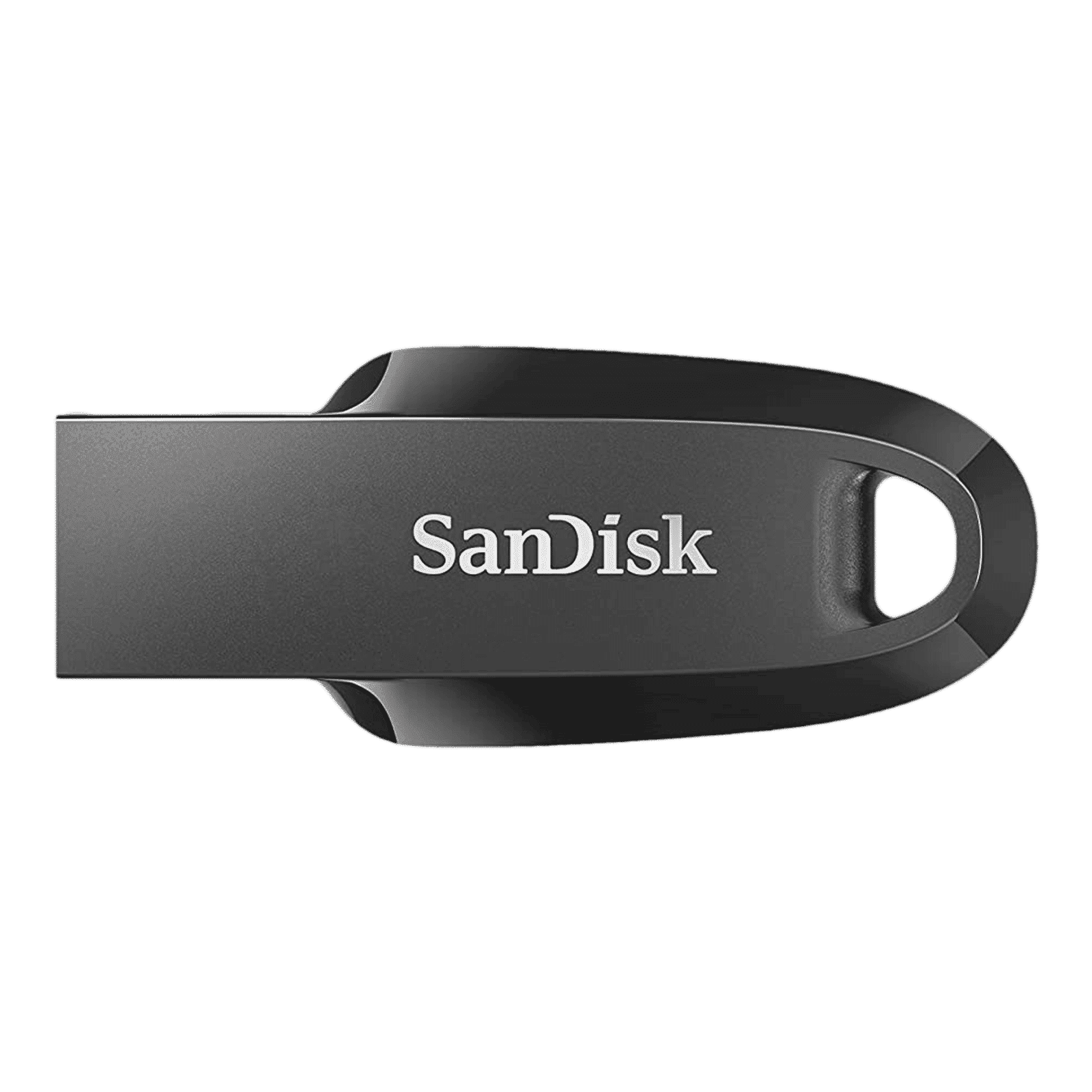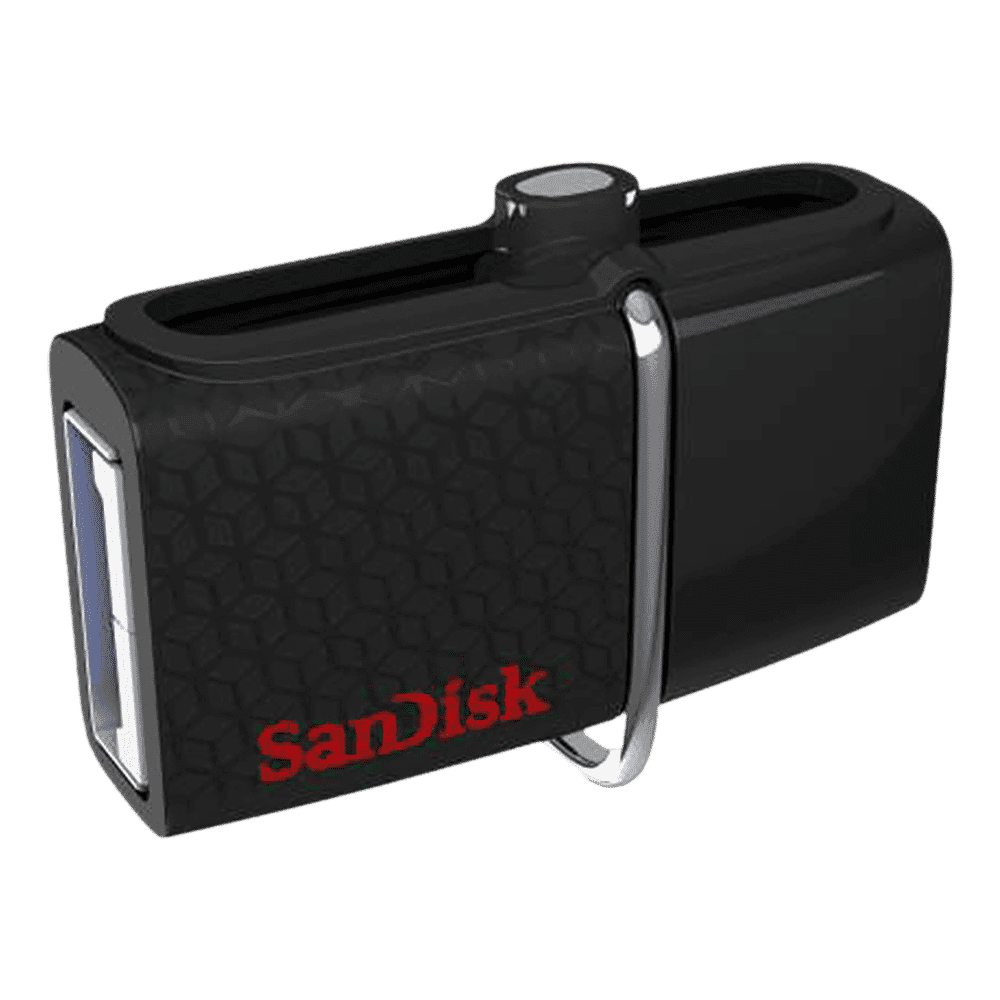%20(Presentation)%20(1600%20x%20600%20px)(20)-a2031a9c-61a5-429c-a42e-338488d70cf3.webp&w=3840&q=75)
Consumer Electronics
•06 min read

Buy SanDisk Ultra 32GB USB (3.0) Pen Drive (Portable Design, Black) online at best prices from Croma. Check product details, reviews & more. Shop now!
Picture this: you’re moving large files between your devices and wondering if there’s a faster, more efficient way. The debate between USB flash drives and hard disk drives (HDDs) comes into the picture when you consider speed, accessibility, and the kind of work you need to complete. In this guide, we will dive deep into the nuances of external storage speed differences, comparing flash drive data transfer rates and hard drive read and write speeds to help you decide which option fits your needs best.
A USB flash drive is a compact, portable storage device that utilises flash memory to store your data. Thanks to its small form factor and durability, it is ideal for carrying important documents, photos and other files on the go. The modern design and reliance on solid-state technology also contribute to its rapid performance, particularly evident in tasks involving small file transfers.
In contrast, an HDD, or hard disk drive, employs mechanical spinning disks to read and write data. Historically, HDDs have offered larger capacities at a lower cost, making them the traditional choice for mass storage. However, they are characterised by moving parts which can limit their speed, especially when compared to the streamlined efficiency of a USB flash drive.
The primary differences between these two storage options lie in their technology and use cases. While USB flash drives benefit from flash memory – a feature that enables faster data access – HDDs rely on spinning disks that can slow down performance during intensive tasks. This distinction creates a natural trade-off between speed and storage capacity, influencing decisions based on how you intend to use your external storage device.
When discussing is usb flash drive faster than hdd, the answer becomes clearer thanks to its superior data transfer rates. USB flash drives, especially those designed with USB 3.0, USB 3.1, or USB 3.2 technology, offer impressive read/write speeds. These standards ensure that even small file transfers occur almost instantaneously, making these devices highly efficient for everyday tasks. This portable storage device speed advantage reflects the power of modern flash technology in today's fast-paced digital world.
The speed of HDDs depends primarily on their rotational speeds, typically 5400 RPM or 7200 RPM. While a 7200 RPM model can handle larger files better than its 5400 RPM counterpart, both versions have a natural mechanical limitation. The process of spinning disks introduces a delay in data access, making HDD vs USB drive performance less efficient when transferring multiple small files. For tasks that require frequent and rapid file access, this can be a drawback.
Direct comparisons show that USB flash drives frequently outperform HDDs, particularly in scenarios that involve transferring quick, small batches of data. Their seamless operations and lower latency allow for more rapid access and retrieval times. However, it is important to note that for sustained transfers of large multimedia files or backups, some HDDs may still hold an advantage in terms of raw storage capacity, albeit with slower performance overall.

Buy SanDisk Ultra Curve 32GB USB (3.2) Pen Drive (Compact Design, Black ) online at best prices from Croma. Check product details, reviews & more. Shop now!
The type of USB port and the interface your devices use can significantly influence transfer speeds. Using a USB 3.0 or a USB-C port ensures that the flash drive data transfer rate is at its optimal level. It is crucial to match your device with the correct USB standard to fully harness the benefits of modern USB flash drives. Despite this, consistently realising improved speeds relies on both the port's specification and the device's internal design.
Both file size and type play an integral role in determining storage performance. Small files benefit greatly from the quick-access architecture of USB flash drives. Conversely, larger files—or even a vast library of files—can slow down HDD performance, especially if fragmentation has occurred over time. This means that for dynamic, everyday use, understanding file fragmentation and choosing the right device becomes a matter of balancing performance with capacity.
Your workflow and the scenarios in which you operate can also determine whether a flash drive or an HDD is more appropriate. For example, tasks like large backups and media editing may benefit from the robust capacity of an HDD. In everyday file transfers or urgent, quick tasks, though, the fast performance from a USB flash drive often wins the day. This insight is particularly relevant for professionals juggling productivity and students with tight schedules.
Insight Corner: "Why USB Flash Drives Are Faster for Small Files" - Did you know? USB flash drives excel at transferring small files because they don’t rely on spinning disks like HDDs. This eliminates the delay caused by mechanical movement, making them a more efficient choice for quick tasks.
The advantages of USB flash drives are manifold. Their portability allows them to be carried easily, paired with a strength in durability and speed. The compact design, coupled with faster flash drive data transfer rates, ideal for quick transfers in both personal and professional environments, positions them as an excellent choice for those in need of fluid device-to-device communication. This makes USB flash drives a favoured option for users on the move.
On the flip side, HDDs come with a set of limitations primarily due to their reliance on mechanical components. The inherent design means that HDD speed limitations are a reality, as the physical spinning of disks cannot match the efficiency of solid-state storage. Additionally, HDDs tend to be bulkier and heavier, limiting their portability. While they offer larger storage capacities, their performance when it comes to swift file access and transfer is notably constrained.

Buy SanDisk Ultra 32GB USB (3.0) Pen Drive (Dual-Connector Design, Black) online at best prices from Croma. Check product details, reviews & more. Shop now!
Solid State Drives (SSDs) provide another alternative in the realm of external storage. SSDs take the solid-state approach further by eliminating all moving parts, thereby offering superior speed and reliability compared to both USB flash drives and traditional HDDs. This option is particularly alluring for users who prioritise speed and reduced latency, whether for intensive work projects or media editing tasks.
Deciding between SSDs, USB flash drives, or HDDs largely hinges on balancing speed and capacity, alongside cost considerations for beginners. SSDs represent a middle ground where you can access both rapid data transfer rates and ample storage. Although they might come at a higher price, the investment is worthwhile for those prioritising efficiency and durability. Whether you are a tech enthusiast, a young professional, or even a student, selecting the right storage depends on your specific needs and workflow.
Throughout this discussion, the clear distinctions between flash drive data transfer rates and hard drive read and write speeds have been emphasised. USB flash drives, with their modern solid state technology, often deliver superior external storage speed differences for everyday tasks. Meanwhile, HDDs, despite their limited portability, continue to hold value for bulk storage where speed can be a secondary consideration.
At Tata Neu, we understand the importance of reliable, high-performance technology that supports your everyday life. Much like the trust you place in trusted brands when shopping for gadgets and appliances, our focus is on providing products that combine convenience with advanced technology. The opportunity to earn NeuCoins rewards on Tata Neu, even when shopping with our partner Croma, highlights our commitment to rewarding your choice for smart, efficient purchasing. This approach is a key component of our dedication to serve you better and allow you to progress in every aspect of life, from leveraging efficient tools to reaping genuine rewards.
USB flash drives are generally faster for data transfer, particularly for small files, thanks to their advanced solid-state technology.
The best choice depends on your needs. USB flash drives are ideal for portability and quick transfers, while HDDs are better suited for large-capacity storage requirements.
Yes, especially those featuring USB 3.0 or higher can outperform HDDs due to their quicker read/write operations.
Yes, USB 3.0 flash drives often demonstrate faster performance than traditional hard drives, particularly in tasks involving small file sizes.
HDDs are slower due to their mechanical design, which inherently restricts their read and write speeds when compared to solid-state storage devices.
By understanding the key differences in performance and functionality between USB flash drives and HDDs, you can make a balanced decision that meets your specific storage needs. Whether your priority is rapid file transfers or large capacity storage, the insights provided above aim to simplify your choice and pave the way for a smarter, more efficient digital experience.